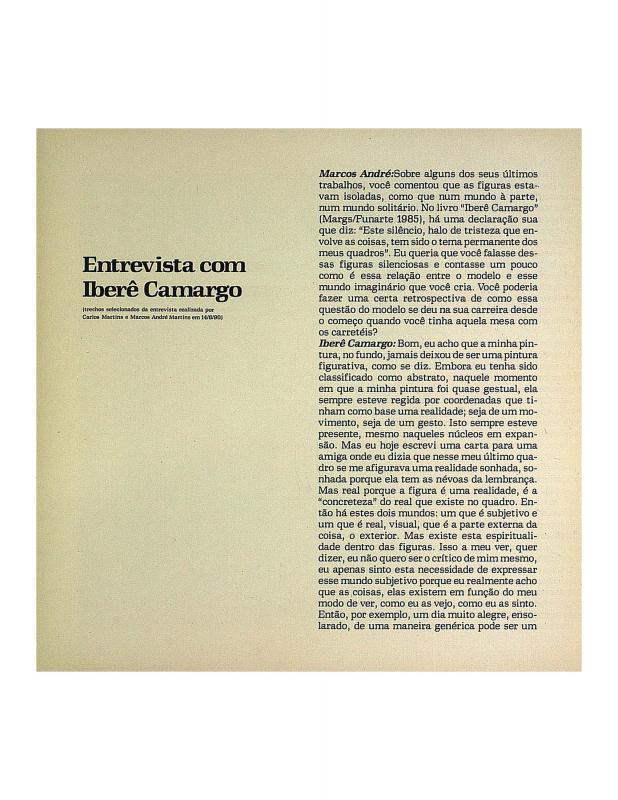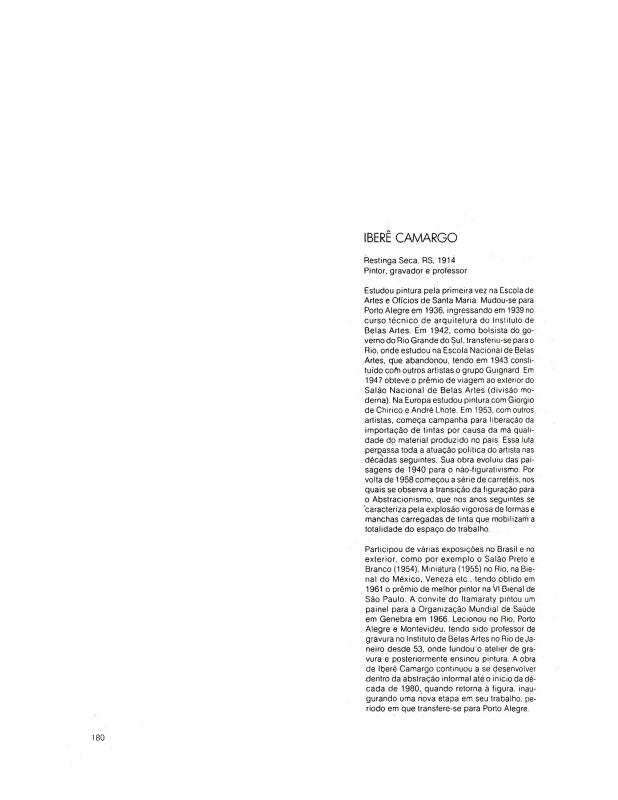In this interview, Iberê [Bassani] Camargo (1914?94) reveals that he came to abstraction—a New Figuration, in his words—through a gradual disintegration of form. He begins with his experience in painting, which extracts realist facets of models, in this way returning an elemental autonomy to color and line. His abstractionist process blended with his experiences to awaken the geometric forms within reels, the female form, gestures, nature, etc. With regard to engraving, Camargo believes that the artistic level of the Brazilian production (Arthur Luiz Piza, Marcelo Grassmann and Fayga Ostrower) compares to the “best produced internationally.” Nevertheless, he objects to the fact that collectors do not value engraving (as if the existence of copies nullified the value of the original). Both “death” and “silence” are key topics within this interview, which he speaks of with a certain lyrical quality, revealing the same concerns that mark his work in fiction.
[As a complementary reading, see in the ICAA digital archive the painter’s interviews with Carlos and Marco André Martins, “Entrevista com Iberê Camargo” (doc. no. 1110420), and with Fernando Cocchiarale and Anna Bella Geiger, “Iberê Camargo” (doc. no. 1110415). See also the essay by Mônica Zielinsky “O sentido da alquimia de Iberê Camargo” (doc. no. 1110421)].


